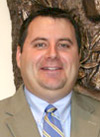
March 23, 2016 – The Wisconsin Legislature wrapped up its 2015-16 regular Legislative Session earlier this month with a flurry of action. The Assembly effectively adjourned in February, leaving the Senate to complete final action on a number of outstanding proposals before it adjourned in mid-March.
Second Chance, 16-Year Term and Criminal Code Rewrite Fall Short
The State Bar was involved with two legislative proposals this session that didn’t gain legislative consideration: the proposal to return some 17-year-olds to juvenile court jurisdiction and the proposal to pass a constitutional amendment to create a single 16-year term for supreme court justices.
The Second Chance Bill, Senate Bill 280/Assembly Bill 378, received overwhelming bipartisan support. A total of 73 legislators signed onto the bill, making it one of the few bipartisan bills not to receive a hearing or vote by the Legislature. Currently, Wisconsin is one of only nine states that treat all 17-year-olds as adults.
Members of the Judicial Election Steering Committee spent much of the legislative cycle working to educate legislators on the State Bar’s proposed change to the Wisconsin Constitution to create a single 16-year term for elected supreme court justices. Constitutional amendments require passage by two consecutive legislatures and a ratification vote by a majority of the electorate. Unfortunately, the proposal was not introduced.
The Judicial Council’s proposal to overhaul the criminal procedure code also ran into legislative obstacles. The council worked diligently with all stakeholders to come to consensus on some of the more contentious items in the bill, but was unable to find agreement before the session adjourned.
State Bar Sections Tackle Multiple Legislative Proposals
The lobbying sections at the State Bar proposed a number of proactive legislative positions this session. Many of these initiatives were a long time coming, having been thoroughly researched and prepared by the sections over the past several years.
The Business Law Section studied and drafted the codification of the Revised Business Partnership Act (RUPA). According to the section, RUPA will foster uniformity with other states and update current laws to assist in creating and growing current Wisconsin businesses. Assembly Bill 837, sponsored by Sen. Devin LeMahieu (R-Oostburg), Sen. Fred Risser (D-Madison), Rep. Evan Goyke (D-Milwaukee) and Rep. Adam Jarchow (R-Balsam Lake), passed in both houses. The bill awaits the governor’s signature before it becomes law.
Next session, the section plans to codify the Revised Limited Liability Corporation Act and the Limited Partnership Act.
The Digital Property Act, a study project from the Real Property, Probate and Trust Section, also received unanimous legislative support this session. The study committee worked with the proposed uniform law draft on the Revised Uniform Fiduciary Access to Digital Assets Act (RUFADAA) to conform it to existing Wisconsin statutes. Proponents say that the Act will assist attorneys, fiduciaries and the public to determine and plan for what happens with digital property and online accounts after death.
The Elder Law and Children and the Law Sections continue to work on guardianship reform. The sections have worked together to remove juvenile guardianship provisions from Chapter 54 and 55 in order to add them to the children’s code in Chapter 48. The Elder Law section is also actively working to improve Chapter 54 and 55.
The Family Law Section is working on legislative proposals related to contingency placement and parent relocation and plans to introduce both proposals in the 2017-18 session. The contingency placement proposal would allow for modification of legal custody or physical placement orders contingent upon the occurrence of a specified future event or change in conditions. According to the section, the relocation proposal would provide a clear process for a separated couple when one parent wants to move with their child(ren) more than 100 miles away from another parent.
 Cale Battles, is a government relations coordinator with the State Bar of Wisconsin. He can be reached by email, or by phone at (608) 250-6077.
Cale Battles, is a government relations coordinator with the State Bar of Wisconsin. He can be reached by email, or by phone at (608) 250-6077.
This session, the Criminal Law Section Board shared its support of Assembly Bill 460, which, if passed, would have increased the compensation available to people who have been wrongfully convicted of a crime. Currently, that amount is capped at $5,000 per year, up to $25,000. If it had passed, the bill would not only increase that amount to $50,000 per year, with a maximum $1,000,000, but provide health care coverage for a number of years upon release. Even though the legislation was unable to reach final passage, the sponsor in the Assembly has committed to reintroducing the proposal next session. The Criminal Law Section will continue to support this legislation in the future.
Legislative Retirements and Elections
A number of legislators have announced that they will not seek re-election this fall:
Assembly
Rep. Dean Knudson (R-Hudson) 30th Assembly District
Rep. Dave Heaton (R-Wausau) 85th Assembly District
Rep. Thomas Larson (R-Colfax) 67th Assembly District
Rep. John Murtha (R-Baldwin) 29th Assembly District
Rep. Andy Jorgensen (D-Milton) 43rd Assembly District
Senate
Sen. Rick Gudex (R-Fond du Lac) 18th Senate District
Sen. Nikiya Harris Dodd (D-Milwaukee) 6th Senate District
Sen. Mary Lazich (R-New Berlin) 28th Senate District
The 2017-18 session will begin on inauguration day, Jan. 2, 2017.
